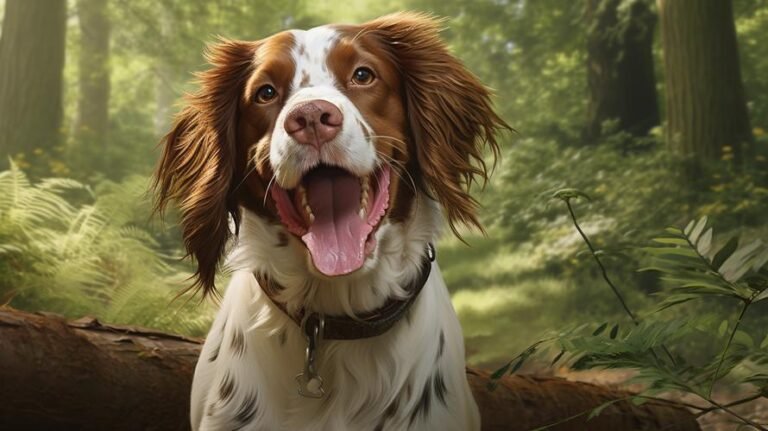Did you know that the sprightly Welsh Springer Spaniel was originally bred for hunting birds and small game? This breed is known for its intelligence, agility, and zest for life. With their joyous spirit and loving heart, they make great family pets. But are they easy to train? Let’s explore that topic with the zest of a Welsh Springer Spaniel barreling after a ball!
First, let’s get to know this energetic breed a little bit better. The Welsh Springer Spaniel, often lovingly known as the Welshie, hails from Wales in the United Kingdom. Unlike their more well-known cousins, the English Springer Spaniel, they have a somewhat different physique and temperament. They are smaller with a distinctive red and white coat, and also sport a resilience and ingenuity that sets them apart. What makes them truly unique though, is their unwavering dedication and singular focus, particularly when they are on a scent.
With their historical background as hunting dogs, they are hardwired to follow their noses. This can be a challenge when trying to train a Welshie, particularly if they catch a whiff of something enticing. However, their generally steadfast nature, intelligence, and eagerness to please also make them easier to train compared to some other breeds.
When it comes to training a Welsh Springer Spaniel, it’s crucial that you start early. Like many dog breeds, Welshies are most receptive to new information when they are puppies. However, their intelligence and willingness to please can make training easier as they get older too.
Keep in mind that the Welsh Springer Spaniel is a sensitive breed. They respond best to positive reinforcement rather than harsh methods. Think of lots of praises, treats, or plays as paychecks for a job well done. Be sure to avoid shouting or using physical punishment with this breed as it can be counterproductive and lead to anxiety or fear-based behavioral issues
Though they are active and energetic dogs, Welshies also thrive on human companionship. Incorporate plenty of one-on-one time during training, and make sure to reward them with love and attention, not just treats. This close bonding will also help you gain their trust, which is an important factor when training any dog breed.
One of the most important aspects of training a Welsh Springer Spaniel is teaching them recall commands early on. Remember, these dogs have a high prey drive and once they pick up a scent, they can easily tune everything else out. Therefore, a strong recall command can make a big difference in managing your Welshie’s adventurous streak.
You’ll also want to bear in mind that Welshies are quite social animals. They thrive in environments where they can interact with other dogs or humans. Socializing your dog from a young age will not only make them more confident and well-adjusted in the long run but it will also prove useful for situations like vet visits, park outings or even during encounters with the mailman.
Given their hunting instincts, your Welsh Springer Spaniel might be a bit too enthusiastic when interacting with smaller pets at home or they may view garden critters as fair game. It’s a good idea to introduce your Welshie to other pets slowly and under controlled circumstances, rewarding them for calm and positive behaviors.
Welsh Springer Spaniels are high-energy dogs and require regular mental and physical stimulation to stay in good shape and spirits. Training activities that provide ample challenges, such as agility training or scent games, can really help to engage and tire out your Welshie, making them more inclined to respond positively to other training tasks.
In conclusion, while the Welsh Springer Spaniel breed isn’t necessarily the easiest to train due to their hunting instincts and high energy levels, they are by no means the hardest. With the right approach of positive reinforcement, early training, socialization, and plenty of stimulation, you can effectively train your Welshie into a well-behaved companion. Like most things, training a Welsh Springer Spaniel will require time, patience, and consistency. But the rewards – a loyal, intelligent, and loving four-legged companion – are more than worth the effort!



